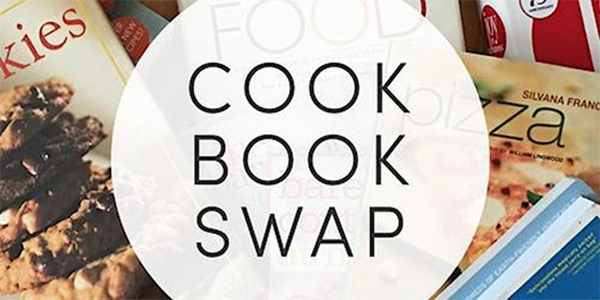This season as you write your resolutions for the new year, make one for the health of the planet and resolve to reduce your waste. Keep the following recommendations in mind when creating your New Year’s waste prevention goal: be realistic, get specific, measure your progress, and don’t give up.
Be realistic
Don’t expect to go zero waste or zero plastic overnight. The more realistic you are in your expectations, the better the outcome. For example, it’s not fair to resolve to start cooking every meal from scratch to avoid plastic if you work a full-time job and have three kids in afterschool activities. But don’t sell yourself short by assuming you can’t change something just because it seems difficult. Take baby steps to make things easier — it’s best to start small and build upon your successes, beginning with actions that interest you. Maybe you pick a theme: recycling more, composting, renting instead of buying, cutting down on junk mail or bringing your wasted food under control.

Get specific
It’s hard to stick to general descriptions like “use less” or “reduce,” especially when you haven’t thought about how to make it happen. Get specific about what you have to do and what might get in the way. For example, you might have a desire to reduce your food packaging, but to achieve that, you must dig deeper. Define the action steps that will make it a reality. First you might look in your trash bin and notice that you have a lot of single-serving snack packaging or frozen pizza boxes. Knowing that you don’t have a lot of time to cook or prepare meals and snacks, you choose to try a few new bulk snack foods and explore your options for quick, simple meals that don’t require a freezer box.
Some people find it helpful to get specific about what happens when you forget or don’t do an action. One family in the county’s Zero Waste Challenge set a goal to use reusable bags for groceries. If they forgot, they did not take disposable bags but instead resolved to carry everything in their arms. This helped them quickly adopt the new habit to bring their own bags.

Measure your progress
In addition to being realistic and specific, think about how you can measure the goals that you set. Consider a goal to reduce paper towel usage. If you currently buy a roll of paper towels every week, set a goal to buy one every other week or less. Then you will easily know if you are achieving your goal or if you have work to do. For other goals that focus on waste reduction or prevention, you might count how many bags of trash you put out, keep an eye on how full your recycling bin is, or keep track of how many times you have to go shopping to pick up specific products.
Don’t give up
Take time to re-establish your habits when they start to slide rather than giving up entirely. Life happens. If you’ve repeatedly tried and just can’t make a habit stick, maybe you need to evaluate if you can overcome your barriers, get creative, or you simply need to pick a different goal instead. Maybe you tried to go plastic-free in your hair care routine but can’t find a shampoo bar that works, so you choose to buy shampoo in bulk in a refillable container instead. Hennepin County hosts a Plastic-Free Challenge and Stop Food Waste Challenge each year, which are great opportunities to recommit to your waste reduction actions or find actions that fit your lifestyle better.
If you set a resolution this year to reduce your waste and practice reuse, remember to make your goals realistic and specific so that you can achieve them. If you run into challenges along the way, get creative about how to prompt your action or accomplish a similar goal. You may not do it perfectly, but your actions are worth it.

